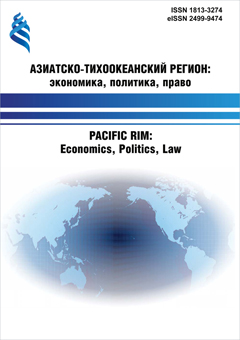THE IMPACT OF «KKONDAE» CULTURE ON INTERGENERATIONAL CONFLICT IN KOREAN WORKPLACES
DOI:
https://doi.org/10.24866/1813-3274/2023-2/83-94Keywords:
kkondae, South Korea, organizational culture, intergenerational conflict, organizational psychologyAbstract
This paper explores the phenomenon of "kkondae" culture in Korean society, especially in the workplace, which involves a hierarchical and authoritarian attitude of the older toward the younger, which leads to generational conflict and negatively affects workplace dynamics. The paper examines three socio-psychological factors (attribution errors, cognitive rigidity, and egocentric communication) to define "kkondae" culture in organizational culture and emphasizes the need to examine the impact of "kkondae" culture on generational conflict and identify policy recommendations to promote a more inclusive and respectful workplace culture. Further research is needed to explore the factors that contribute to the emergence and persistence of the "kkondae" phenomenon in different social contexts.



